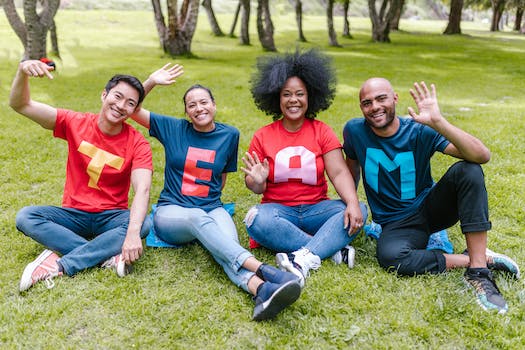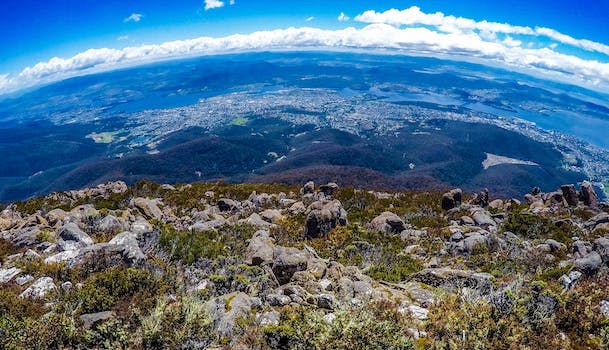Exploring the World: Unforgettable Cultural Adventures
- 1. Introduction
- 1.1. What are cultural adventures?
- 1.2. Importance of cultural adventures
- 1.3. Benefits of cultural adventures
- 1.4. Popular cultural adventure destinations
- 1.5. How to plan a cultural adventure
- 2. Exploring Local Traditions
- 2.1. Immersing in local festivals
- 2.2. Learning traditional arts and crafts
- 2.3. Sampling local cuisine
- 2.4. Visiting historical landmarks
- 2.5. Interacting with local communities
- 3. Experiencing Indigenous Cultures
1. Introduction
Exploring the World: Unforgettable Cultural Adventures
1.1. What are cultural adventures?
Cultural adventures refer to immersive experiences that allow individuals to explore and engage with different cultures around the world. These adventures often involve traveling to foreign countries or regions and actively participating in local traditions, customs, and activities. They provide a unique opportunity to gain a deeper understanding of diverse cultures, their history, art, cuisine, and way of life. Cultural adventures can include attending festivals, visiting museums and historical sites, learning traditional crafts or dances, or even living with local communities for a period of time. By stepping out of our comfort zones and embracing unfamiliar environments, we can broaden our perspectives, foster cross-cultural connections, and create lasting memories.
1.2. Importance of cultural adventures
Cultural adventures are an essential aspect of exploring the world. They offer a unique and immersive experience that allows travelers to delve deep into the customs, traditions, and lifestyles of different cultures. These adventures provide an opportunity to broaden one’s horizons, gain a deeper understanding of diverse communities, and foster a sense of empathy and respect for others.
By engaging in cultural adventures, travelers can witness firsthand the rich heritage and history of a place. Whether it’s visiting ancient temples, exploring archaeological sites, or participating in traditional ceremonies, these experiences create lasting memories and a profound connection to the destinations visited.
Moreover, cultural adventures provide a platform for meaningful interactions with locals. By engaging in conversations, sharing meals, or participating in local activities, travelers can gain insights into the daily lives and values of the people they encounter. These interactions foster cultural exchange, promote mutual understanding, and break down stereotypes.
Furthermore, cultural adventures contribute to sustainable tourism. By supporting local communities, businesses, and artisans, travelers help preserve and promote cultural heritage. This not only ensures the preservation of traditions but also provides economic opportunities for the local population.
In conclusion, cultural adventures are not only about sightseeing; they are about immersing oneself in the essence of a place. They provide an enriching experience that goes beyond surface-level tourism, allowing travelers to connect with different cultures on a profound level. So, embrace the opportunity to embark on unforgettable cultural adventures and open your mind to the world’s diverse wonders.
1.3. Benefits of cultural adventures
Cultural adventures offer a unique and enriching way to explore the world. These experiences provide an opportunity to immerse oneself in different cultures, traditions, and customs, allowing for a deeper understanding and appreciation of our diverse world. The benefits of embarking on cultural adventures are numerous, ranging from personal growth and self-discovery to fostering global awareness and understanding. In this article, we will delve into the various advantages of these unforgettable journeys.
1.4. Popular cultural adventure destinations
Exploring the World: Unforgettable Cultural Adventures
When it comes to travel, there is nothing quite as enriching as immersing oneself in different cultures. From vibrant festivals to ancient traditions, cultural adventures offer a unique and unforgettable experience for those seeking to expand their horizons. In this article, we will explore some of the most popular cultural adventure destinations around the world, where travelers can delve into the rich tapestry of human history and traditions. So pack your bags and get ready for a journey of a lifetime!
1.5. How to plan a cultural adventure
Planning a cultural adventure is an exciting way to explore the world and immerse yourself in different cultures. Whether you’re a seasoned traveler or someone who is new to international travel, embarking on a cultural adventure can be a life-changing experience. This article will guide you on how to plan a cultural adventure, from choosing the destination to organizing your itinerary and making the most out of your trip. Get ready to embark on an unforgettable journey filled with unique experiences, delicious cuisine, and fascinating traditions!
2. Exploring Local Traditions
Exploring Local Traditions
When embarking on a journey to discover new cultures and immerse ourselves in diverse traditions, it is essential to explore the local customs and practices of the places we visit. These traditions offer a unique insight into the history, beliefs, and values of a particular community or region.
One of the most fascinating aspects of traveling is witnessing the local traditions that have been passed down through generations. From vibrant festivals and colorful ceremonies to age-old rituals and culinary traditions, each destination has its own set of customs that make it truly distinct.
By taking the time to understand and appreciate these local traditions, we not only gain a deeper understanding of the culture but also contribute to its preservation. Engaging in traditional activities, such as participating in a traditional dance or trying out local cuisine, allows us to connect with the community on a more personal level.
Whether it’s joining a traditional tea ceremony in Japan, celebrating Diwali in India, or experiencing the Day of the Dead in Mexico, these cultural adventures leave a lasting impact on our lives. They provide us with a sense of awe and wonder, as we witness the beauty of human creativity and expression.
Exploring local traditions also helps break down barriers and fosters cross-cultural understanding. It allows us to appreciate the similarities and differences between our own culture and the culture we are experiencing. Through these encounters, we learn to embrace diversity and celebrate the rich tapestry of traditions that exist around the world.
In conclusion, exploring local traditions is an integral part of any cultural adventure. It adds depth and meaning to our travels, allowing us to connect with the essence of a place and its people. So, next time you embark on a journey, be sure to delve into the local traditions and create unforgettable memories that will stay with you forever.
2.1. Immersing in local festivals
Immersing in local festivals allows travelers to experience the vibrant traditions and cultural richness of a destination. These festivals are an integral part of the local community, providing a unique insight into their customs and way of life. From colorful parades to traditional dances, each festival showcases the distinct heritage and identity of the region. Participating in these celebrations not only offers an unforgettable cultural adventure but also fosters a deeper understanding and appreciation for the local traditions. Whether it’s joining in the lively festivities of a religious ceremony or witnessing ancient rituals passed down through generations, exploring local festivals is a captivating way to connect with the heart and soul of a place.
2.2. Learning traditional arts and crafts
Learning traditional arts and crafts is a wonderful way to immerse yourself in the local culture and traditions of a place. Whether it’s pottery-making in Japan, batik painting in Indonesia, or weaving baskets in Africa, these traditional art forms offer a unique glimpse into the history and heritage of a community.
By engaging in these traditional activities, you not only learn about the techniques and materials used but also gain a deeper understanding of the values and beliefs that are integral to the culture. It allows you to connect with the locals on a more personal level and fosters a sense of appreciation for their craftsmanship.
Moreover, learning traditional arts and crafts can be a hands-on and fulfilling experience. It allows you to tap into your creativity, develop new skills, and create something beautiful with your own hands. Whether you are a beginner or an experienced artist, there is always something to learn and discover in the world of traditional arts and crafts.
Exploring local traditions through traditional arts and crafts is a rewarding adventure that not only enriches your travel experience but also helps in preserving cultural heritage. So, next time you travel, consider taking a class or workshop to learn a traditional art form and embark on an unforgettable cultural journey.
2.3. Sampling local cuisine
One of the most exciting parts of exploring a new destination is sampling the local cuisine. Each country has its unique flavors and traditional dishes that are a reflection of its culture and history. From savoring street food in bustling markets to indulging in fine dining experiences, immersing yourself in the local food scene is a must for any traveler. By trying local dishes, you not only get to satisfy your taste buds but also gain a deeper understanding of the traditions and customs of the place you are visiting. Whether it’s feasting on spicy curry in India, enjoying sushi in Japan, or relishing pasta in Italy, the world of flavors is vast and diverse. Exploring the local cuisine is an adventure on its own, allowing you to connect with the locals and experience their way of life through food. So, when you embark on your next cultural journey, make sure to embark on a culinary exploration as well!
2.4. Visiting historical landmarks
When it comes to exploring the world, one cannot miss the opportunity to visit historical landmarks. These remarkable sites not only hold immense historical significance but also offer a glimpse into the rich cultural heritage of a place. Whether it’s the towering pyramids of Egypt, the majestic Taj Mahal in India, or the ancient ruins of Machu Picchu in Peru, each historical landmark has a unique story to tell.
Stepping foot into these landmarks is like stepping back in time. The intricate architecture, the preserved artifacts, and the tales passed down through generations make the experience truly unforgettable. It’s a chance to connect with the past, to understand the struggles and triumphs of those who came before us.
Exploring local traditions is another essential aspect of cultural adventures. Each region, each country has its own set of customs, rituals, and practices that have been carried on for centuries. From vibrant festivals that bring communities together to age-old culinary traditions that tantalize the taste buds, immersing yourself in local traditions is a gateway to understanding the heart and soul of a place.
By participating in local customs, you become a part of the culture, embracing the traditions that have shaped the identity of a community. Whether it’s trying your hand at traditional dances, attending religious ceremonies, or enjoying traditional music performances, every aspect of local traditions offers a unique and enriching experience.
Exploring historical landmarks and local traditions go hand in hand when it comes to cultural adventures. They provide an opportunity to learn, appreciate, and celebrate the diverse cultures that exist around the world. So, next time you embark on a journey, make sure to include these two elements in your itinerary for an unforgettable and truly immersive experience.
2.5. Interacting with local communities
When it comes to exploring the world and immersing oneself in different cultures, one of the most rewarding experiences is interacting with local communities. These interactions allow travelers to go beyond the surface level and truly understand the traditions and customs of a particular place.
Exploring local traditions is an essential part of any cultural adventure. It provides a unique insight into the history, beliefs, and values of a community. Whether it’s participating in traditional rituals, attending local festivals, or learning traditional crafts, there are countless opportunities to engage with local traditions.
By actively participating in the customs of a community, travelers not only gain a deeper understanding of the local culture but also create meaningful connections with the people they encounter. These interactions can lead to unforgettable experiences and lifelong friendships.
When exploring local traditions, it is essential to approach them with respect and an open mind. Learning about the significance of different rituals or practices can help travelers appreciate the cultural heritage of a place. Additionally, engaging with the local community can also support the preservation and promotion of these traditions.
Overall, exploring local traditions is a vital aspect of cultural adventures. It allows travelers to broaden their horizons, challenge their perspectives, and create lasting memories. So, next time you embark on a journey to a new destination, make sure to immerse yourself in the local traditions for an unforgettable experience.
3. Experiencing Indigenous Cultures
Experiencing Indigenous Cultures
Indigenous cultures around the world offer a unique and enriching experience for travelers seeking to explore diverse cultural traditions. Whether it is immersing oneself in the ancient rituals of the Maasai tribe in Kenya, witnessing the vibrant dances of the Aboriginal people in Australia, or participating in traditional ceremonies of the Native American tribes in the United States, these encounters provide an unforgettable journey into the heart of indigenous heritage.
By engaging with indigenous communities, travelers have the opportunity to learn about their ancestral customs, beliefs, and way of life. This cultural exchange promotes understanding, respect, and appreciation for the rich tapestry of human diversity that exists across the globe.
Moreover, experiencing indigenous cultures goes beyond mere observation. It often involves active participation in cultural activities such as learning traditional crafts, tasting local cuisines, or even joining in celebratory festivals. This hands-on approach allows travelers to fully immerse themselves in the cultural fabric of the communities they visit.
In addition to the personal growth and transformation that comes from these experiences, supporting indigenous communities also has a positive impact on their livelihoods. Tourism can provide economic opportunities for indigenous people, helping to preserve their cultural heritage and maintain their way of life in an ever-changing world.
Whether it is trekking through the lush Amazon rainforest to meet indigenous tribes, exploring the intricate cave paintings of the San people in South Africa, or discovering the ancient wisdom of the Maori people in New Zealand, experiencing indigenous cultures is a truly transformative and awe-inspiring adventure.
3.1. Understanding indigenous customs and traditions
Indigenous customs and traditions offer a unique and fascinating glimpse into the rich cultural heritage of various communities around the world. These customs are deeply rooted in history and have been passed down through generations, serving as a significant part of their identity. Understanding and experiencing indigenous cultures can be a truly enriching adventure, allowing travelers to gain a profound appreciation for the diversity of human expression.
When immersing oneself in indigenous customs, one must approach with respect and open-mindedness. Each community has its own distinct set of traditions, rituals, and beliefs, which may vary greatly even within the same region. It is essential to recognize that these customs are sacred and hold deep meaning for the indigenous people. By engaging in a genuine and respectful manner, travelers can forge connections and foster cultural exchange that goes beyond superficial observations.
Indigenous customs often revolve around the natural world, as many communities have a strong connection with their surrounding environment. Rituals and ceremonies are frequently centered on harvest seasons, celestial events, or significant milestones in the community’s life. These occasions provide an opportunity to witness age-old practices, such as traditional dances, music, storytelling, and intricate craftsmanship, all of which contribute to the preservation of their cultural heritage.
Moreover, experiencing indigenous cultures goes beyond mere observation; it involves active participation. Many communities welcome visitors to engage in their customs, inviting them to partake in ceremonies, learn traditional skills, or even contribute to community projects. This immersive approach allows for a deeper understanding of the indigenous way of life, fostering mutual respect and appreciation.
Overall, exploring indigenous customs and traditions is an invaluable journey that offers a profound insight into the world’s cultural tapestry. It is an opportunity to celebrate diversity, challenge preconceptions, and develop a greater understanding of humanity’s shared heritage. By embracing these experiences, travelers can embark on unforgettable cultural adventures that leave lasting impressions and create bonds of understanding between different peoples and cultures.
3.2. Participating in traditional ceremonies
Participating in traditional ceremonies allows travelers to immerse themselves in the rich cultural heritage of indigenous communities. These ceremonies provide a unique opportunity to witness age-old rituals and customs that have been passed down through generations. From the vibrant dances and colorful costumes to the rhythmic music and enchanting chants, participating in these ceremonies is a truly unforgettable experience.
By taking part in traditional ceremonies, travelers can gain a deeper understanding of the indigenous cultures they are visiting. They can learn about the significance of each ritual, the symbolism behind the costumes and decorations, and the spiritual beliefs that form the core of these ceremonies. This firsthand experience fosters a sense of appreciation and respect for the traditions and values of indigenous communities.
Moreover, participating in traditional ceremonies allows travelers to forge connections with the local communities. It provides an opportunity to interact with the indigenous people, listen to their stories, and learn about their way of life. Through these interactions, travelers can gain insights into the challenges faced by indigenous communities and contribute to their preservation and empowerment.
Overall, participating in traditional ceremonies is a transformative cultural adventure that offers a deep appreciation for the diversity and richness of indigenous cultures. It allows travelers to celebrate and honor the traditions of these communities while fostering meaningful connections and promoting cultural understanding.
3.3. Learning indigenous languages
Learning indigenous languages is a valuable way to immerse oneself in the rich and diverse cultures of indigenous communities around the world. By taking the time to learn and speak their native languages, one can gain a deeper understanding of their customs, traditions, and ways of life.
Indigenous languages carry within them centuries of history and are often closely intertwined with the cultural identity of their respective communities. They provide a unique window into the worldview, values, and beliefs of these communities. Through language, one can learn about their spiritual practices, storytelling traditions, and even their relationship with the natural world.
Moreover, learning an indigenous language can foster a sense of connection and respect towards these communities. It shows a willingness to engage with their culture on a deeper level and promotes cross-cultural understanding and appreciation. Language is a powerful tool for building bridges and forging meaningful connections between different cultures.
In addition to the cultural enrichment, learning indigenous languages can also have practical benefits. It opens up opportunities for communication, collaboration, and participation in community activities. It allows for a more authentic and meaningful experience when visiting indigenous communities, as speaking their language can break down barriers and establish a sense of trust and respect.
Overall, learning indigenous languages is an invaluable way to experience and appreciate indigenous cultures. It is a gateway to understanding their history, traditions, and perspectives. By making the effort to learn and use these languages, we can contribute to the preservation and revitalization of these important cultural treasures.
3.4. Exploring ancient ruins and artifacts
Exploring ancient ruins and artifacts is an exhilarating journey that allows us to delve into the rich history of civilizations long gone. From the towering pyramids of Egypt to the mysterious stone structures of Machu Picchu, these ancient ruins hold secrets and stories waiting to be discovered. As we wander through these historical sites, we are transported back in time, feeling a deep connection to the people who once thrived in these ancient civilizations.
But it is not just the ruins themselves that captivate us; it is also the artifacts that were left behind. These relics provide a tangible link to the past, offering insights into the daily lives, beliefs, and customs of our ancestors. Each artifact tells a unique story, whether it’s a beautifully crafted pottery, a meticulously carved statue, or an intricately designed piece of jewelry.
In addition to exploring ancient ruins and artifacts, another captivating aspect of cultural adventures is experiencing indigenous cultures. These encounters offer a glimpse into the traditions, rituals, and way of life of different communities around the world. From participating in traditional ceremonies to learning indigenous crafts, these experiences provide an opportunity to immerse ourselves in a world that is vastly different from our own.
By engaging with indigenous cultures, we gain a deeper appreciation for the diversity of human existence and the interconnectedness of our global community. We learn to respect and honor the wisdom passed down through generations, recognizing the importance of preserving and protecting these ancient traditions.
In conclusion, embarking on a journey to explore ancient ruins and artifacts and experiencing indigenous cultures are truly unforgettable cultural adventures. They allow us to not only learn about the past but also to connect with our shared humanity and appreciate the beauty of our world’s diverse heritage.
3.5. Supporting indigenous communities
Supporting indigenous communities is crucial in preserving their rich cultural heritage and ensuring their sustainable development. By actively engaging with and supporting indigenous communities, travelers can have the opportunity to learn and experience their unique traditions, languages, and art forms.
Experiencing indigenous cultures is a transformative and enlightening adventure. It allows travelers to immerse themselves in ancient rituals, traditional music and dance, storytelling, and local cuisines. Through these cultural encounters, visitors gain a deeper understanding and appreciation for the intricate connections between indigenous communities and their natural surroundings.
Engaging in indigenous cultural experiences also provides economic opportunities for the communities. By participating in community-led tours, purchasing authentic handcrafted souvenirs, and supporting local businesses, travelers directly contribute to the livelihoods of indigenous people.
Moreover, experiencing indigenous cultures fosters mutual respect, understanding, and dialogue between different cultural groups. It promotes cultural exchange and appreciation, breaking down stereotypes and promoting a more inclusive and tolerant society.
In conclusion, exploring indigenous cultures is not only a thrilling adventure but also a way to support and celebrate the diversity and heritage of indigenous communities. By engaging with these communities in a sustainable and respectful manner, travelers can make a positive impact while creating unforgettable cultural experiences.
Conclusion
In conclusion, exploring the world through unforgettable cultural adventures is a transformative experience that allows us to broaden our horizons, gain a deeper understanding of different cultures, and create lasting memories. Whether it’s immersing ourselves in local traditions, sampling unique cuisines, or witnessing breathtaking landmarks, these adventures offer a unique perspective on the diversity and beauty of our world. So, pack your bags, embrace the unknown, and embark on a journey that will leave an indelible mark on your soul.





